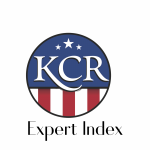After this morning’s commute dealing with the metro’s 2nd round of winter precipitation, we thought it would be the perfect time to post about the effects of winter weather on the metal accenting your buildings and some tips on how best to handle ice, snow melt, and the rust or corrosion that can be left behind.
What is rust? It’s the common name for iron oxide which develops from the interaction of oxygen, water, and iron over time. Rust technically only happens when iron is present in your metal, such as in iron alloys like steel. In other metals like bronze, brass, or copper, you can still see corrosion, but it results in oxides different from rust. An example of this would be the green oxidation you might see on these types of metal after long exposure to the outdoors.
Not all oxides are bad. The metal refinishing process called patina is a controlled oxidation whereby professionals use different chemicals to produce these molecular changes on the surface of the metal. That’s how KC Restoration’s technicians can deliver the myriad of gorgeous tones in your metal.

However, when oxidation and corrosion is left unchecked, you will run into problems. That’s why you want to regularly inspect your building’s metal with an eye toward both signs of corrosion and signs of any ice or snow build-up in the vicinity of the metal. If safely possible, you will want to clear away the ice or snow build-up. Once temperatures allow, we also recommend pressure washing these areas as any residual amounts of precipitation left behind will continue the corrosion process.
Even if you don’t see signs of corrosion on the exterior of the metal, also be aware that water can easily get past holes that are too small for the naked eye to see and can soak past seams if your metal is plated over other metal or concrete. Even the concrete will likely have supportive iron rebar in its midst that could be the source of any developing problems as expanding rust destroys the concrete from within. If you find any problem areas, address them as soon as possible to avoid more costly repairs or replacement due to more advanced corrosion.

Our next tip is to choose wisely when it comes to the type of deicer you use. These products can speed up the corrosion process: chloride, salt which is composed primarily of sodium chloride, and chloride products that claim to be “less corrosive” because they have CMA (calcium magnesium acetate). Chloride ion molecules interact with and speed up the oxidation and corrosion process. The Federal Aviation Administration even prohibits the use of chloride deicers to keep aircraft from exposure to this corrosive material.
To avoid greater corrosion, use non-chloride deicers. Common dry non-chloride deicers are CMA (calcium magnesium acetate), sodium acetate, and urea. The primary liquid non-chloride deicer for pavement is potassium acetate which is found in Select or Ice Guard Liquid Deicer. Note that none of these chemicals have the word “chloride” in them.
If chloride-based deicers have been or continue to be used in the vicinity of metal, be aware that overspray often splatters chloride onto metal thus speeding up corrosion in those areas. Consider switching deicers, and/or make sure staff or vendors are being particularly careful around metal as well as scrubbing any areas of metal affected to remove as much of the chloride-based deicers remaining on the metal.
 Then if you discover corrosion, make sure you call KC Restoration’s team to see what repair and restoration options you have and how they relate to more expensive replacement options. The exterior stainless handrails in these images began rusting due to exposure to the elements and rock salt being applied. We were able to remedy and mitigate this problem by removing the rust before application of an exterior protective clear coat that will help maintain the handrail’s beauty too.
Then if you discover corrosion, make sure you call KC Restoration’s team to see what repair and restoration options you have and how they relate to more expensive replacement options. The exterior stainless handrails in these images began rusting due to exposure to the elements and rock salt being applied. We were able to remedy and mitigate this problem by removing the rust before application of an exterior protective clear coat that will help maintain the handrail’s beauty too.
If you have any questions about winter’s effects on metal or if you find any areas of corrosion on your property, the experts at KC Restoration will be happy to help you. Call us at (913) 766-2200 or email at contact@2024.s1049332946.onlinehome.us.
